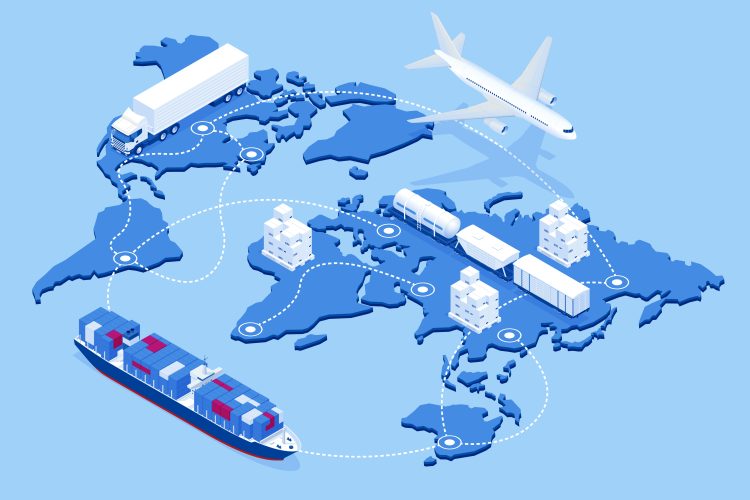‘Stress-testing’ Europe’s food system
- Like
- Digg
- Del
- Tumblr
- VKontakte
- Buffer
- Love This
- Odnoklassniki
- Meneame
- Blogger
- Amazon
- Yahoo Mail
- Gmail
- AOL
- Newsvine
- HackerNews
- Evernote
- MySpace
- Mail.ru
- Viadeo
- Line
- Comments
- Yummly
- SMS
- Viber
- Telegram
- Subscribe
- Skype
- Facebook Messenger
- Kakao
- LiveJournal
- Yammer
- Edgar
- Fintel
- Mix
- Instapaper
- Copy Link
Posted: 24 April 2024 | Ilario Ingravallo, Kristen Sukalac | No comments yet
Ilario Ingravallo and Kristen Sukalac discuss Food Alert’s simulation of a food crisis, revealing the interconnectedness of global food systems and emphasising the need for collaborative, cross-sector solutions to enhance resilience.


By Ilario Ingravallo, Mission Lead – Reducing Risk for a Fair and Resilient Food System, EIT Food and Kristen Sukalac, Consulting Partner, Prospero & Partners
In recent years, we have witnessed how events like the war in Ukraine, disruptions in key agricultural regions, and environmental shocks can trigger a cascade of effects throughout the food trade network. This can impact food availability, prices, and ultimately food security on a global scale.
The interconnectedness of supply chains means that shocks in one region can have widespread repercussions, affecting not only local producers but also consumers worldwide.
So how can we support the food system to build resilience in the face of these growing, interconnected threats?
Food Alert: Europe’s first food crisis simulation
The first project of its kind to take place in Europe, “Food Alert” brought together over 60 European food systems experts and practitioners to explore practical policy responses to a simulated food crisis.
In February, the Food Alert convening partners (Sciences Po, Centre for Systems Solutions, Prospero and Partners, Chatham House, INRAE, and the European Policy Centre – supported by the Lead Sponsor, EIT Food, along with the Government of the Kingdom of the Netherlands) led an interactive, two-day workshop in Brussels with experts from across governments, industry, civil society, academia and media.
The Food Alert simulation was a fictional, but very realistic scenario in which a full set of extreme, but plausible, crises linked to environmental shocks, geopolitical tensions, and socio-economic factors occur. We often think of these crises in isolation, however during the Food Alert simulation, we saw how they were very much interconnected, often with overlapping impacts.
Twelve short- and long-term policy ideas emerged from the simulation, including the suggestion to upscale food reserves through a new Food Allocation Reserve Management (FARM) programme, and a proposal to guarantee support for vulnerable populations in times of crises.
So far these are only ideas, which would require more time, research and collaboration to develop into comprehensive policies. But what the Food Alert initiative has proven is that it is crucial to involve a wide range of stakeholders from different sectors, across different spatial scales – from local communities to the global stage – in order to effectively tackle crises, strengthen food system resilience, and coordinate responses to challenges affecting food security and stability.
What does this mean for the food industry?
The outcomes from the Food Alert project have significant implications for the food industry.
To begin with, there was an awareness among the workshop participants that significant changes are occurring in relation to where the food industry sources its raw materials. In some cases, these changes are taking place because producers are looking for more secure or more diverse sources. In other cases, food manufacturers want more of the raw materials coming from plants or bioreactors, whether for packaging or the food product itself. In addition to changes being driven by the risk of disruption, there is a feedback loop whereby consumer demand is also a factor driving the choices that food companies make about their supply chains.
Another relevant outcome for the food industry relates to the nature of the Food Alert exercise itself. The first workshop was designed to stimulate new thinking about European policy, but this kind of crisis simulation can also be used to identify vulnerabilities of individual value chains, and can even be run at a company level. Food Alert provides a methodology that food companies can take advantage of to stress test their own systems and better prepare for future shocks.
“What I find very interesting in the work that you’ve done is that you’ve developed what I dare to say is an innovative approach, by bringing stakeholders from across the food chain to specifically simulate a food crisis and stress test the food system,” said Catherine Geslain-Lanéell, Director Strategy and policy analysis DG AGRI, European Commission
Building a resilient food system
One of the key lessons from the Food Alert simulation is that the food system is incredibly complex, and the simulation brought some surprising interconnections to the surface.
At the launch event for the Food Alert report, Jessica Fitch from the European Consortium of the Organic-Based Fertilizer Industry (ECOFI) pointed out that during the Covid-19 lockdown, ‘non-essential’ sectors such as the collection of municipal garden waste were interrupted, but that garden waste is used for making organic fertilisers and plays a significant role in food production. It is vital that policymakers are aware of these links.
Another theme which emerged from the Food Alert project is the critical role that farmers play in safeguarding and boosting the resilience of our food system, and there are several growing areas of innovation supporting them in this capacity.
One is precision agriculture, which optimises farm management, allowing producers to use data to determine exact quantities of crop needs, such as irrigation and the nutritional content of soil. The EIT Food co-funded LINKDAPA project is an initiative helping farmers to improve their efficiency by utilising big data in a low-cost, simple way to reduce the impact of fertilisers whilst maintaining profitability.
Another suggestion that emerged from Food Alert focused on the need to increase investment in food innovation, particularly for protein diversification. Consumption levels and our global overreliance on animal protein place a large strain on land and natural resources; vulnerabilities which can threaten food system resilience in times of crisis.
Innovating in the field of protein diversification has the potential to alleviate these challenges. For example, Charlotte Epinay from Food Fermentation Europe has noted that the raison d’être of her industry is to produce proteins in new ways that eliminate some of the vulnerabilities of existing methods like livestock production.
However, there are currently barriers to accelerating progress towards a shift in how we produce and consume protein. The EIT Food Protein Diversification Think Tank, in consultation with experts and stakeholders across the food system, has developed a policy brief offering recommendations to overcome the challenges facing innovation in this field.
This first Food Alert workshop was a proof-of-concept. Developing fictional scenarios and creating simulations like Food Alert are resource intensive, so it has been rewarding to see the level of interest in the outcomes of this initial phase.
The Food Alert team is now working with stakeholders across the food system to consider how this experience can be replicated at different political levels and with different scenarios, possibly including aquaculture, bioterrorism, and other risks. It is imperative that the outcomes remain accessible, and that stakeholders across the food value chain – including consumers – continue to be involved in shaping a more resilient food system.
About the authors




Related topics
Research & development, Supply chain, Trade & Economy, World Food









